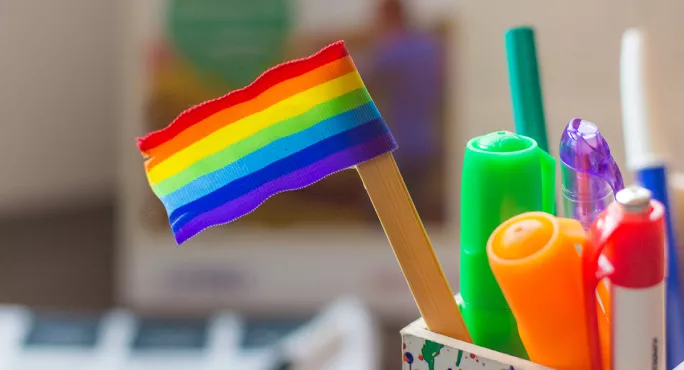Heads ‘least likely’ to know about trans students

Headteachers are being urged to be more “aware” of students who are coming out as transgender, after research showed they are much less likely than other staff to know this is happening.
In an independent survey of teachers across England, just 40 per cent of headteachers said they had at least one student who had come out as trans in their school, compared with 50 per cent of classroom teachers, 63 per cent of middle leaders and 55 cent of senior leadership team members.
Just Like Us, the LGBT+ young people’s charity that commissioned the research, says it wants headteachers to be as “aware” of the needs of young trans people as classroom teachers.
- Comment: ‘Section 28 still stops me from coming out at school’
- Safeguarding: Teachers urged to better protect LGBT+ students
- Bullying: £750K scheme to target ‘sexual bullying’ in schools
But Geoff Barton, general secretary of the Association of School and College Leaders, said that teachers were more likely to be aware of students coming out as transgender because of their direct contact with students in the classroom.
The survey of 6,394 primary and secondary teachers across England was run by survey app Teacher Tapp, on behalf of Just Like Us.
Improving support for trans students in schools
The survey also showed that the majority of headteachers (79 per cent) wanted more help and guidance on how to best support trans students in school.
Some 79 per cent of classroom teachers and SLT members, and 77 per cent of middle leaders, also said they wanted more support.
Dominic Arnall, chief executive of Just Like Us, said that to make sure that all schools are safe places for trans young people, it is important that all school staff have the proper training and resources they need, and that “accountability for this sits with school leadership”.
He added: “We really want headteachers, as much as classroom teachers, to be aware of the needs of trans young people, the issues they’re facing and how to prevent transphobic bullying.
“Trans inclusion - and LGBT+ inclusion, more broadly - is everyone’s responsibility.
“You don’t need to be an expert in gender to support trans young people,” he said, pointing to the help available to schools from his charity and “a range of trans-led organisations”.
Jack Stote, a music teacher with previous experience as a PSHE coordinator, said that some teachers were not always confident approaching issues such as trans students coming out, but he echoed Mr Arnall in saying that they don’t need to be experts.
“I have seen a willingness to learn and understand amongst colleagues, but I’ve also seen colleagues who might be embarrassed and not know what to do,” he said.
“My main bit of advice is: it’s OK not to know and it’s OK to ask.”
But he added that if staff at schools were struggling with how to approach issues experienced by LGBT+ students, then “this should be addressed at senior level, perhaps by some CPD”.
Mr Barton said: “Teachers are more likely to be aware where a pupil has come out as a transgender because they are directly teaching the pupil concerned, whereas headteachers may become aware if there is an associated issue, such as that pupil experiencing bullying.
“Schools are very good at communicating effectively between teaching staff and senior leaders, and will have in place appropriate policies to ensure that issues such as bullying are dealt with effectively and swiftly.”
Register with Tes and you can read two free articles every month plus you'll have access to our range of award-winning newsletters.
Keep reading with our special offer!
You’ve reached your limit of free articles this month.
- Unlimited access to all Tes magazine content
- Save your favourite articles and gift them to your colleagues
- Exclusive subscriber-only stories
- Over 200,000 archived articles
- Unlimited access to all Tes magazine content
- Save your favourite articles and gift them to your colleagues
- Exclusive subscriber-only stories
- Over 200,000 archived articles



